■ Starring: Attorney Seo Jeong-bin
* The text below may differ from the actual broadcast content, so please check the broadcast for more accurate information. Please specify [YTN Newswide] when quoting.
[Anchor]
Lee Jae-myung, chairman of the Democratic Party of Korea, who was indicted on charges of violating the Public Official Election Act, was sentenced to probation in prison in the first trial.
The political repercussions are also considerable. Representative Lee Jae-myung and the Democratic Party of Korea are contradicting the court's judgment and signaling an appeal. Related content, let's point out with lawyer Seo Jeong-bin so far. Hello,
The judgment of the first trial on the violation of the election law of representative Lee Jae-myeong,
has been made. Before the sentence, many people expected that the fine would be more than 1 million won or less, but the sentence was higher than this. How does it compare to a normal sentence?
[Jeongbin Seo]
is correct. If you are fined more than 1 million won for election crimes under the Public Official Election Act and your sentence is confirmed, you will be judged because you consider this as more important than punishment because your election will be invalidated or your right to run for election will be deprived. So, I think there are a few cases where this standard is usually sentenced inside or outside. In the past, lawmaker Lee Kyu-min was fined 3 million won and ended like that, while lawmaker Kim Jin-tae was found not guilty by a higher court, but was fined 2 million won in the first trial before that. And although it is not spreading false information like this case, the mayor of Tongyeong was recently fined 900,000 won for violating the Public Official Election Act, and some say that the punishment was much greater than we expected.
[Anchor]
Therefore, he received a much higher sentence than expected. But earlier, the prosecution asked for two years in prison. However, to what extent did the court accept the court's reason for the sentence this time, can we judge it like this?
[Jeongbin Seo]
First of all, according to the Supreme Court's sentencing standards, it recommends a sentence of up to two years if it is aggravated in relation to election offenders, especially the spread of false information. And the prosecution's sentence was so close to the maximum. At this time, false information is a very important judgment on the candidate's evaluation, or if there is a very high transmissibility, or if there is a similar criminal record, it will be aggravated. Given the reason for the sentence in the first trial, various suspicions about representative Lee Jae-myung at the time were of public interest, and as it was broadcasted, its propagation and ripple power were quite large. He explained that since the statements were important matters related to the candidate's ability and qualities, he considered the risk of distorting public opinion due to these points and was fined for the same crime, so he included all of these and eventually sentenced to a one-year suspended sentence of two years.
[Anchor]
Let's take a closer look at this case and issue. In two main ways, did you know or did not know the late Kim Moon-ki? And there must be allegations of corruption in Baekhyun-dong's development. Regarding the late Kim Moon-ki, I think he judged some innocence and some guilt. How did you like it?
[Jeongbin Seo]
First of all, remarks related to the late Kim Moon-ki can be divided into two main categories, one of which was that he did not know about Kim Moon-ki's existence at the time of Seongnam Mayor and became a provincial governor. And the other thing was that the photo taken with Kim Moon-ki was fabricated, and these two remarks were made. First of all, the first trial ruled that Kim Moon-ki was not aware of this remark, which was judged not guilty, when he was mayor of Seongnam. So, given the reason, the statement that he did not know Kim Moon-ki at the time cannot be seen as denying such communication with Kim Moon-ki. And he was acquitted because it was difficult to say that he didn't know someone under the Public Official Election Act because it was a statement about an act. However, the rest of the photos taken with Kim Moon-ki were fabricated. This statement is false, and in the end, it corresponds to the publication of false information under the Public Official Election Act. So I found him guilty.
In fact, in relation to the photo of Lee Jae-myung and Kim Moon-ki together in the People's Power at the time, Lee Jae-myung said that the photo was fabricated by taking some of the group photos. However, in the first trial, I understood the meaning of this remark once again and understood it to mean that I did not play golf with Kim Moon-ki on an overseas business trip. So, in fact, I played golf with Kim Moon-ki while on an overseas business trip, so I judged that it was false.
[Anchor]
However, the Democratic Party of Korea and representative Lee Jae-myung protested, saying that the court had an expanded interpretation. How do you see this?
[Jeongbin Seo]
In fact, it seems that the Democratic Party of Korea is criticizing the first statement because the first statement was a fabrication of the photo released by the power of the people. The court judged the specific situation and grasped the meaning of the content once again. In the first trial, the specific circumstances were considered at the time. So, at that time, there was such a reason to make such a statement due to the suspicion of the Daejang-dong development project and the death of Kim Moon-ki, and the overall purpose of this statement and the message to the elector, so this was interpreted as not playing golf or not playing together during the business trip with Kim Moon-ki. Therefore, the Democratic Party of Korea is also criticizing that this point is interpreted from the existing remarks and that there is a big difference. In fact, this part of the second trial is expected to be contested as one of the important issues.
[Anchor]
Then, what do you think about the possibility that this part will be overturned in the second trial?
[Jeongbin Seo]
In fact, since the judgment was made in the first trial, it seems that these are basically unlikely to be overturned in the second trial, but on the other hand, I think it is a little more likely compared to other convictions. Until now, I think Lee Jae-myung's representative has focused on the fact that he did not know Kim Moon-ki. However, regarding the statement that the photograph was fabricated, the specific defense may not have been intensively defended, and the conviction may have been made. Therefore, it seems that the first trial's interpretation is an excessive interpretation and an expanded interpretation, so if you think about the guilty part, there is a high probability that this part could change a little more.
[Anchor]
Until now, the lawyer had two big issues, namely, he did not know Director Kim Moon-ki, and then there was pressure from the Ministry of Land, Infrastructure and Transport regarding Baekhyun-dong, which summarized the issues related to Kim Moon-ki. But there's another issue. Is it correct to analyze whether Baekhyun-dong-related false information was published or not, but the court convicted this part and this part also had a great influence on the overall sentence?
[Jeongbin Seo]
That's right. In fact, representative Lee Jae-myung's side has argued that the change of use at the time was inevitably carried out by such threats from the Ministry of Land, Infrastructure and Transport regarding Baekhyun-dong. However, the court did not see it that way, and in the end, Seongnam and Lee Jae-myung, the mayor of Seongnam, reviewed it themselves and decided to change it. And given the evidence, the Ministry of Land, Infrastructure and Transport's official document did not specifically specify the area for use. It also revealed that the request for cooperation was not in accordance with the mandatory provisions. In view of that, we judged that the remarks were false because they were not carried out under threat or coercion from Lee Jae-myung or Seongnam City, but because they were carried out under their own review.
So, this point was also an issue of public suspicion at the time, and it was eventually delivered through such media that had a ripple effect on it through broadcasting, so when it was judged of course to this day, it seems that the crime was serious, and it seems that it had a great influence in the first trial.
[Anchor]
However, the Democratic Party of Korea is protesting the exemption of the parliamentary audit regarding Baekhyun-dong's remarks. Can this part be accepted in the second trial?
[Jeongbin Seo]
According to the National Assembly Testimony Appraisal Act, when a witness who appeared at the audit makes a statement, there is no disadvantage above the punishment under the Audit Act. And representative Lee Jae-myung has argued that the prosecutor's prosecution is illegal, considering this as a reason for indemnification, but if the first trial first indicates false facts while knowing that they are clearly false, immunity cannot be applied to that. And the remarks were irrelevant to the purpose of the audit, so we decided that the disclaimer was not subject to the disclaimer. So, of course, in the second trial, we will examine in detail the background of the parliamentary inspection, the questions that happened before, and the answers that followed, but since the first trial has already judged that this is a clear false fact, I think it would be a little difficult to admit such immunity in the second trial.
[Anchor]
However, the judiciary's sentencing judgment varies depending on whether or not the suspect is admitted to the charges in a trial. Then, can Representative Lee Jae-myung see the need to revise the defense strategy?
[Jeongbin Seo]
In fact, it may be a situation in which such a strategy modification is also necessary only in a typical case. Because whether to admit or deny the prosecution is also an important sentencing judgment data, it can be considered that way, but at least in this case, I don't think it's a matter of significantly revising such a strategy.
[Anchor]
Will it stick?
[Jeongbin Seo]
Because if a sentence of just over 1 million won was sentenced in the first trial, it would be possible to consider whether to admit some facts in the second trial, but with such a sentence now in prison and suspended, there is no need to think about whether to admit some of these facts at all. Now, it is important whether all of them are acquitted or guilty in the second trial. If so, it can be expected that the first trial will continue to strengthen its claims and argue intensively.
[Anchor]
If the ruling of the first trial is confirmed even by the Supreme Court, it will inevitably have a big impact on the political circle because it cannot run in the election for 10 years, right? How long will it take to make a grand judgment?
[Jeongbin Seo]
In fact, it will take some time because each trial takes different times. It's hard to predict, but first of all, under the Public Official Election Act, the appeals court and the Supreme Court are required to sentence within three months. However, when such a case is actually made under the Public Official Election Act, the period is often not observed rather than observed. Especially in this case, it took more than two years for the first trial to be sentenced, and the trial has been considerably longer with more than 50 witnesses being summoned. Of course, the second and third trials are based on this, so I think it will be much less time than the first trial, but I think it will take some time compared to other cases. In the end, the most important thing is whether the decision will be made or not until the next presidential election, but since there are more than two years left until the presidential election, I think we can predict that the Supreme Court will still make a final decision.
[Anchor]
However, if the results of the first trial are confirmed by the Supreme Court, shouldn't the Democratic Party return 43 billion won in election expenses? Is this legally stipulated? Which one is it?
[Jeongbin Seo]
That's right. This is now stipulated in the Public Official Election Act. Article 265-2 of the Act stipulates that if a sentence corresponding to invalidity of election is received, and if the election is a presidential election, the candidate should not return the compensated election expenses to the party he/she belongs to, but to the recommended party. That's why, if this case confirms a similar result, the Democratic Party will have to return the 43.4 billion won in election expenses that were compensated for under the law.
[Anchor]
This time, let's look at the case of Myung Tae-kyun's alleged intervention in the nomination. Myung Tae-kyun, former lawmaker Kim Young-sun, and these two were eventually arrested. Is it because both of them are now concerned about destroying evidence?
[Jeongbin Seo]
That's right. The most important thing in determining whether or not to be arrested is the fear of destruction of evidence, the fear of flight, and on the other hand, it seems that the fear of destruction of evidence was very high. At that time, the prosecution also requested a warrant and emphasized that in the case of Myung Tae-kyun, all three mobile phones used before and after the presidential election were discarded through his brother-in-law, and that there was a concern of destroying evidence by using a borrowed-name phone from then on. On the other hand, in the case of former lawmaker Kim Young-sun, he discarded a mobile phone at the beginning of this year, replaced one in June, and even opened a mobile phone in his mother's name. Therefore, because these are circumstances that can be considered to be highly feared to destroy evidence, the court eventually issued an arrest warrant for fear of destroying evidence.
[Anchor]
It is said that Myung Tae-kyun received money envelopes from First Lady Kim Gun-hee twice, and he told the prosecution, but I was wondering how I should look at this part. So, if a quid pro quo is recognized, what kind of punishment will be given, that is, whether it is quid pro quo or not, is the key now.
[Jeongbin Seo]
That's the key. Now, Myung Tae-kyun is said to have made statements related to such money envelopes in the prosecution's investigation. He said he received money envelopes from First Lady Kim Gun-hee about twice, and one of them stated that he remembers September 2021, and also confirmed the photo of the Covana content money envelope on his confiscated mobile phone. As you said, Myung claims that it was received in the name of transportation expenses, but if it is said that this is money that is recognized for its price, and if it is confirmed that it was around September 2021, as Myung says, this is when President Yoon was a candidate, and if it is confirmed that he was involved at that time, there is a problem that could be a donation under the Political Fund Act.
[Anchor]
I think we need to make sure we investigate when we received it, whether there is a price or not, and whether President Yoon knew it or not, how do you view the investigation of President Yoon and his wife?
[Jeongbin Seo]
In fact, it seems a little negative as to whether such an investigation will continue immediately in the current situation. First of all, given that Myung Tae-kyun, who is making a statement now, is actively saying whether he will continue to make such statements in the future, and so far, it is questionable whether there will be any additional statements to investigate these allegations. Above all, if such an investigation eventually leads to President Yoon or First Lady Kim Gun-hee, it will have a significant impact on itself, so the prosecution believes that it will be a little cautious about proceeding with such an investigation.
[Anchor]
Then, what do you think about the need for an investigation?
[Jeongbin Seo]
In fact, if you look at the contents revealed so far, wouldn't it be necessary to investigate even briefly? When compared with other cases, these statements eventually came out and other people's testimony to support those statements. In this case, there is a statement that Kang Hye-kyung received 5 million won, so I think that an investigation should be conducted on the witnesses who came out like this in order to clarify the case and determine the existence of such allegations.
[Anchor]
How can a quid pro quo be established in the course of an investigation?
[Jeongbin Seo]
And the most important thing is the statements of the people who gave and received the money, but on the other hand, even if there's such a price, the statements of the people who gave and received the money are consistent, so this is the transportation cost, or something else. In such a case, was there a reason to deliver such money at the time, and what about other circumstances? So, whether the nature of this money can be viewed differently from the statement, these external circumstances are fully considered and investigated. So if there are a number of people who have been told that they were paid by this external situation, by people who have been told that they were paid by that time, their statements can be used as important evidence to reinforce these allegations.
[Anchor]
There are also criticisms of the prosecution's belated investigation, but the Democratic Party of Korea alone handled the Special Prosecutor's Act on Kim Gun-hee. Depending on the direction of the prosecution's investigation, there seems to be a possibility that the public opinion of the special prosecution law will move. What do you think?
[Jeongbin Seo]
That seems highly likely. So far, what the prosecution is focusing on seems to be investigating the alleged violations of the Political Fund Act by Myung Tae-kyun and former lawmaker Kim Young-sun. And of course, there is an investigation into the local election candidate who said he gave money to Myung for the purpose of nomination at the time, but he seems to be focusing only on violating the Political Fund Act. If the investigation continues to reveal such business relationship between Myung and Kim Gun-hee, and such circumstances suspected of illegal transactions, the prosecution's investigation will not proceed further. If this happens, public opinion on the special prosecution law will eventually move. In particular, since representative Lee Jae-myung and Kim Hye-kyung have been convicted, I think public opinion will move a little because of the issue of equity compared to these things.
[Anchor]
In the midst of this, Rep. Lee Joon-seok has raised suspicions of intervening in the nomination of the president of Yoon Suk Yeol. But now, since President Yoon was elected at the time, is this a public servant or not? It is said that it becomes an issue depending on whether it is. How can I view it legally?
[Jeongbin Seo]
That's right. Under the Public Official Election Act, public officials can be punished if they use their position to intervene in the election process. However, since President Yoon Suk Yeol was not a public official at the time before his inauguration, it seems that it is not a public servant, so it is a little difficult to apply the relevant regulations as they are. Of course, in the case of the president-elect, the law on the transition of the presidency mentions various honorable treatment and authority, but there are no specific regulations related to his status, so it is difficult to regard him as a public official until he takes office. However, the announcement of the nomination was on May 10, and this was the inauguration day of President Yoon Suk Yeol. Since the nomination intervention was completed at that time, there have been opinions that the status of public officials is recognized so far, so this seems to be a matter to be watched after considering the facts and details that will come out in the future.
[Anchor]
Let's stop here. So far, I've talked with lawyer Seo Jeong-bin. Thank you for talking today.
[Jeongbin Seo]
Thank you.
※ 'Your report becomes news'
[Kakao Talk] YTN Search and Add Channel
[Phone] 02-398-8585
[Mail] social@ytn. co. kr
[Copyright holder (c) YTN Unauthorized reproduction, redistribution and use of AI data prohibited]
Politics
More- Lee Jae-myung attends rally to denounce regime "never die"
- Han Dong-hoon aims at Lee Jae-myung, "Even if it takes time"... The 'Democratic Party's outdoor rally' is also on fire.
- Lee Jae-myung's rally to denounce the regime the day after his sentencing... "I will never die."
- "I will fight Lee Jae-myung until the end" of the emergency joint meeting of Minjoo, lawmakers, and regional committee members.
![[Weather] Starting tomorrow, the weather will change... morning east coast rain](https://image.ytn.co.kr/general/jpg/2024/1116/202411161901141854_h.jpg)
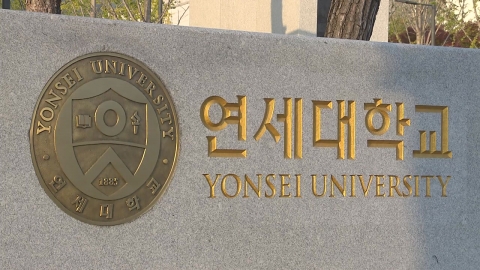
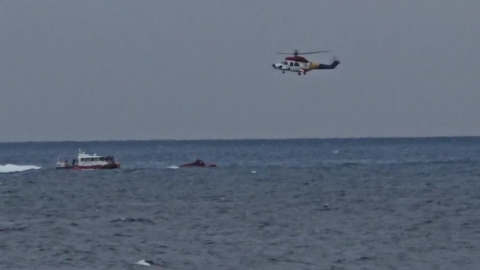
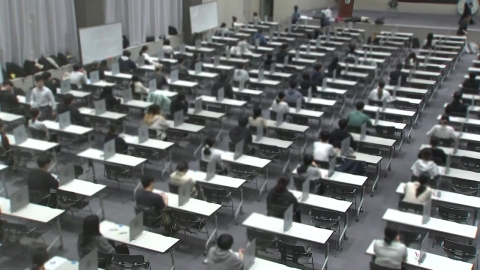
![[Yeterview] Choi Hye-sun "The opposite of 'Bloody Game' and 'Solo Hell'..."I'm looking forward to your new side".](https://image.ytn.co.kr/general/jpg/2024/1116/202411161109572531_h.jpg)
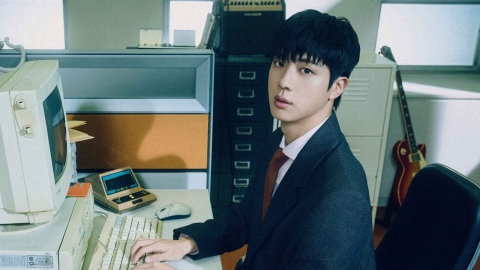
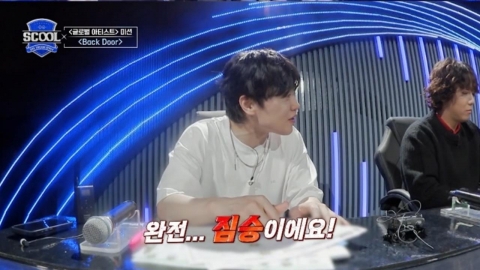
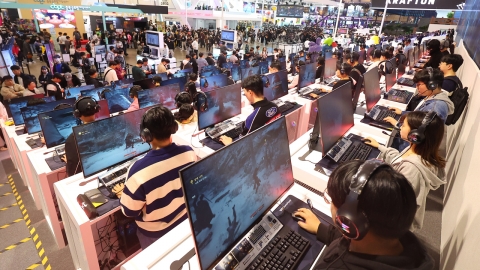
![[G-Star 2024] HiveIM's first outing raises expectations for new works](https://image.ytn.co.kr/general/jpg/2024/1115/202411151733271198_h.jpg)
![[G-Star 2024] Gravity, Main IP 'Ragnarok 3', etc. will be released for the first time.](https://image.ytn.co.kr/general/jpg/2024/1115/202411151613167158_h.jpg)